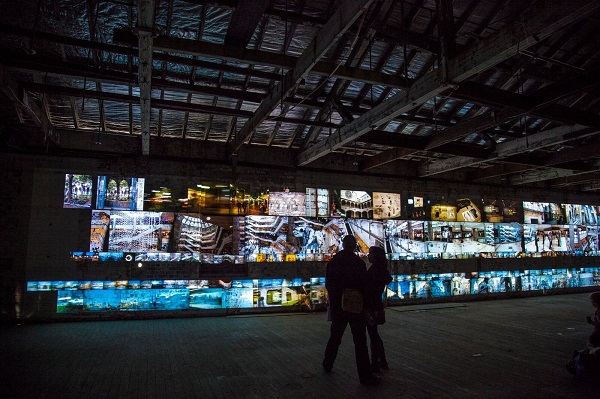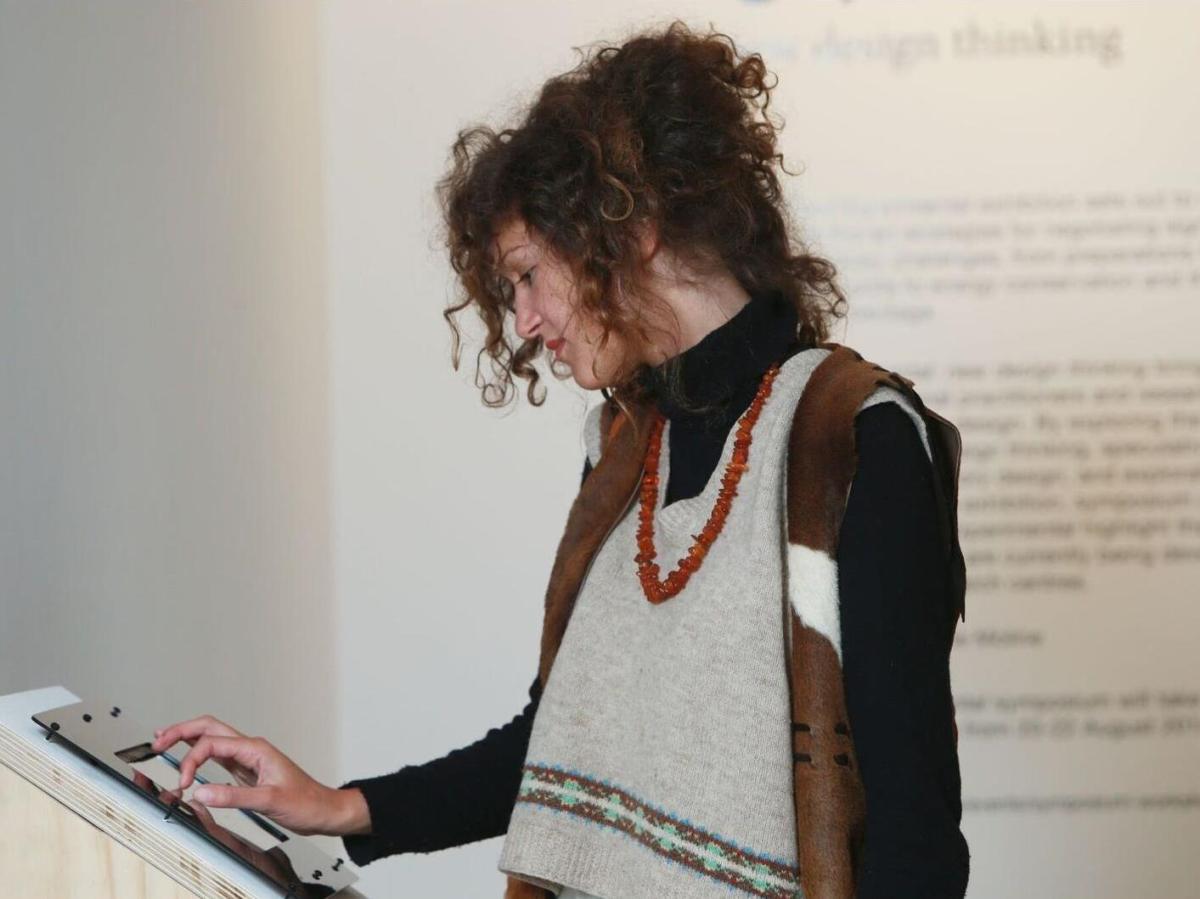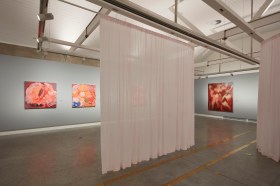Visitor at UNSW Galleries. Photo: Britta Campion
The key for any PhD is that the candidate must contribute new knowledge to the world, but how that knowledge is formulated has been contested for a long time.
Art schools have fought to have creative practice accepted by the academic arena. Whilst it is now relatively common to gain a doctorate through art or design practice, curators are often encouraged to do a more traditional art history thesis.
A new scholarship, however, is a high-profile recognition of the importance or research based on curating. UNSW Art & Design has partnered with the Museum of Contemporary Art Australia (MCA) to offer a $20,000 PhD Scholarship in the field of contemporary curatorial practice.
The candidate will be embedded in the museum and will have access to the museum’s resources as the basis of their research.
‘In the past five years the academy has learnt to deal with practice – that is recognising the doing of things as contributing to new knowledge,’ said Dr Lizzie Muller, director of the Master of Curating and Cultural Leadership program at UNSW Art & Design School.
That means that curators working in institutions can now take on PhD study that is relevant, real and with immediate impact upon the industry.
“New knowledge” has expanded to include curating a show, or series of shows, a lecture series or museum-based research around any number of engagement forms, from technology to attendance patterns.
‘We are interested in how curators act as leaders – not just collection managers or directors. They are an active force in creating new kinds of art infrastructure, and that is vital knowledge,’ said Muller.
Career boost with relevance
In the competitive field of arts professionals, education is a key way of recalibrating a career. For career advancement a Masters Degree has become essential and, increasingly, a PhD pushes a curator ahead of the herd.
‘It can be that really pivotal moment in someone’s career,’ said Muller.
‘There are extremely scholarly people working in the field who thought of their curatorial practice as separate to their scholarly research. This shift in academic acceptance has opened up so many new doors to what curators can do as academics,’ continued Muller.
The role the MCA plays in this PhD Scholarship is key.
‘The MCA’s investment says, “We understand that research is important to us as an institution”. That they are creating a space for rigorous reflection and contributing to the global conversation around curatorial practice is a really forward thinking and a valuable step for the industry,’ said Muller.
Embedded partnership means extended outcomes
The working culture in the MCA is reflective and critical, but the reality is that day-to-day most curators are rushed off their feet. MCA recognised that inviting a PhD candidate into the fold could help them to stay engaged in cutting edge research
‘This scholarship provides the student with a huge amount of institutional buy-in,’ said Muller. ‘Access to the MCA collection, MCA archives, MCA audience and staff can only lead to really outstanding outcomes.’
For the MCA this buy-in involves considering and developing the cultural conditions for “thinking across” different modes of practice within the museum.
Muller said that while the extra scholarship cash is really nice, to be embedded within an internationally recognised institution and contributing to global discussions on curating is the real boon.
The MCA/UNSW Curatorial Scholarship is part of the GLAM+ initiative, an alliance between the School and Sydney’s leading cultural organisations, which aim is to create research opportunities that address real-world challenges faced by galleries, libraries, archives and museums (or GLAM sector).

Brad Miller, Data_shadow, Underbelly Arts, Cockatoo Island 2011 Courtesy the artist. Photo PJ Bateman
Course adapts to changes in curatorial practice
As academic practice has opened up, curatorial education at Masters level has also changed.
‘Curatorial practice is no longer just a role of taking care of collections; it is also very proactive and innovative in developing new opportunities for audiences to engage with culture,’ said Muller.
‘We want our graduates to see themselves as game changers in a dynamic cultural ecology, not just a cog in a machine’, said Muller.
The past version of a curatorial career followed the path from intern to assistant curator to curator, essentially moving up the ranks.
‘We are interested in curators who are able to question institutional structures, policy, and find new ways of doing things. They need to understand how the cultural landscape is changing,’ said added.
‘It’s not about sitting and waiting for the next entry-level job at your favourite gallery; you have to be creating the space to do your work. That is why cultural leadership is such a crucial idea for curators,’ said Muller.
This scholarship adds to a suite of scholarships available to support curatorial postgraduate work at UNSW Art and Design, including the Nick Waterlow Scholarship and the Freedman Scholarship which support students in the Master of Curating and Cultural Leadership.
What you need to know
The MCA/UNSW PhD Scholarship will be awarded as a top-up to an Australian Post-graduate Award (current value between $26-30,000 per annum, tax exempt).
The MCA will provide an additional $20,000, which consists of $5,000 annual stipend (tax exempt) for three years and $5,000 towards research expenses.
The candidate will have access to a dedicated working space and IT facilities at the MCA for at least two days per week.
Timetable:
Deadline for EOIs: 15 September 2016
Interviews: Late September 2016
Deadline for full scholarship applications: 13 October 2016





